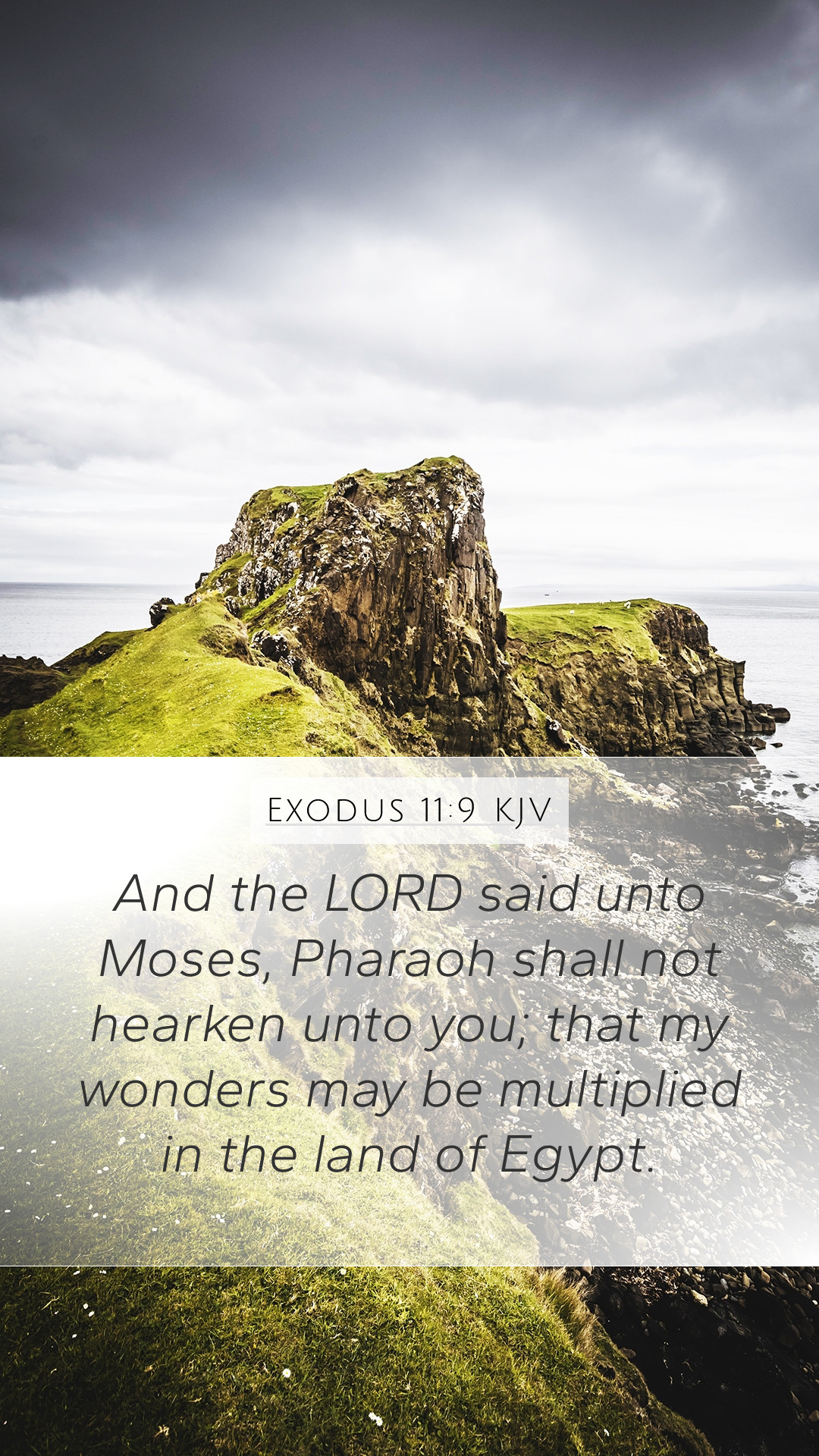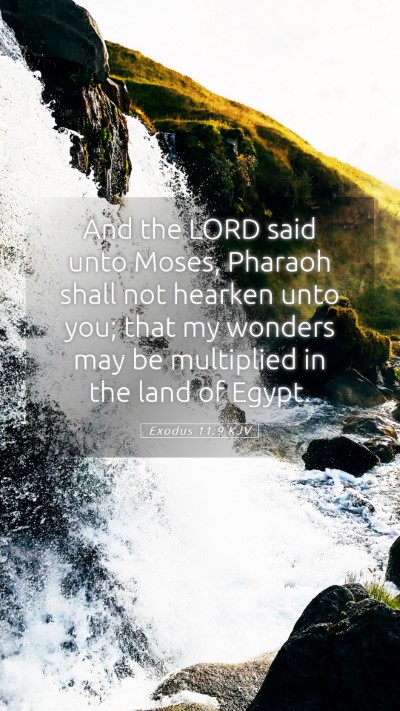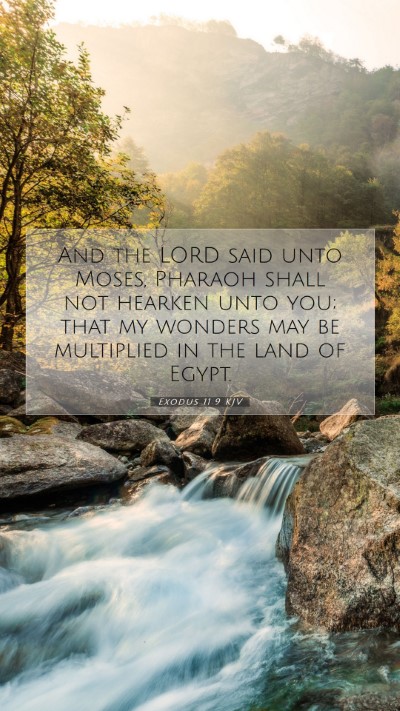Understanding Exodus 11:9
Exodus 11:9 states: "And the LORD said unto Moses, Pharaoh shall not hearken unto you; that my wonders may be multiplied in the land of Egypt." This verse is significant in illustrating the divine sovereignty and the unfolding of God's plan in the liberation of the Israelites.
Bible Verse Meanings
In this passage, the Lord communicates to Moses that Pharaoh's stubbornness is part of God's sovereign plan. The refusal of Pharaoh to listen serves to showcase the might of God through the miracles He performs. The assertion that "my wonders may be multiplied" indicates that God’s intentions are not merely to lead His people out of bondage but to demonstrate His supreme authority and power over Egypt's gods.
Bible Verse Interpretations
- Matthew Henry: Henry emphasizes that the obstinacy of Pharaoh allows God to multiply His wonders, thus fortifying the faith of the Israelites and showcasing God's power in contrast to Egyptian deities.
- Albert Barnes: Barnes notes that God’s dialogues with Moses show His direct involvement in the events of Exodus, highlighting the futility of opposing God's will.
- Adam Clarke: Clarke explains that the refusal of Pharaoh reinforces the need for the miraculous plagues as a demonstration of God's supreme authority over all nations and rulers.
Bible Verse Understanding
This verse is a critical component of the narrative leading to the final plague, the death of the firstborn. The insistence on Pharaoh's lack of heed serves to build anticipation for the subsequent acts of God. This insistence also serves to escalate the drama of the Exodus and highlight God’s judgment against Egypt.
Bible Verse Explanations
Exodus 11:9 functions not only as a prophetic statement but also as a theological declaration regarding the nature of God’s interventions in human affairs. It implies that human agency, represented by Pharaoh, is under God’s sovereign control, and serves a purpose in the greater redemption narrative of Israel.
Scripture Analysis
The analysis of this verse can be framed in various contexts:
- Theological Context: This verse reveals God's omnipotence and the fulfillment of His covenant promises to Israel.
- Historical Context: Understanding the significance of Egypt as a political and spiritual oppression helps to grasp the depth of Pharaoh's rejection and its implications.
- Literary Context: This portion of scripture builds on preceding chapters that detail the confrontations between Moses and Pharaoh, each intensifying the struggle between divine and human authority.
In-Depth Bible Verse Analysis
To fully grasp the implications of Exodus 11:9, consider both the immediate narrative and broader redemptive themes present in scripture.
Questions for Bible Study Groups:
- What does Pharaoh's resistance tell us about human nature in the face of divine instruction?
- How does God's actions in Egypt parallel His work throughout biblical history?
- In what ways can we see God's sovereignty in our modern world?
Meaning of Bible Verses in Context
Cross References
- Romans 9:17: "For the Scripture says to Pharaoh: 'I raised you up for this very purpose...'"
- Exodus 3:19: "But I know that the king of Egypt will not let you go unless a mighty hand compels him."
- Exodus 4:21: "And the LORD said to Moses, 'When you return to Egypt, see that you perform before Pharaoh all the wonders I have given you the power to do...'"
Application of Exodus 11:9
In applying the insights from this verse to daily life, believers are encouraged to recognize that God’s plans often unfold through human obstinacy and challenges. Just as Pharaoh's resistance served a higher purpose, so too can our difficulties cultivate resilience and a deeper faith.
Bible Study Insights
This passage encourages profound contemplation of the motives of our hearts and the nature of our response to divine guidance. Through such reflections, one can cultivate a greater understanding of scripture and the ways in which individual experiences resonate with biblical narratives.
Understanding Scripture Through Commentary
It is beneficial to engage with various biblical commentaries that provide perspectives from different theological views. Incorporating the insights of scholars such as Matthew Henry, Albert Barnes, and Adam Clarke can lead to a deeper appreciation of the text and its implications for contemporary faith.
Conclusion
Exodus 11:9 serves as a reminder of God's control over history and a call to trust His processes. The verse invites believers to explore deeper meanings, applications, and assurances found throughout the Bible.


